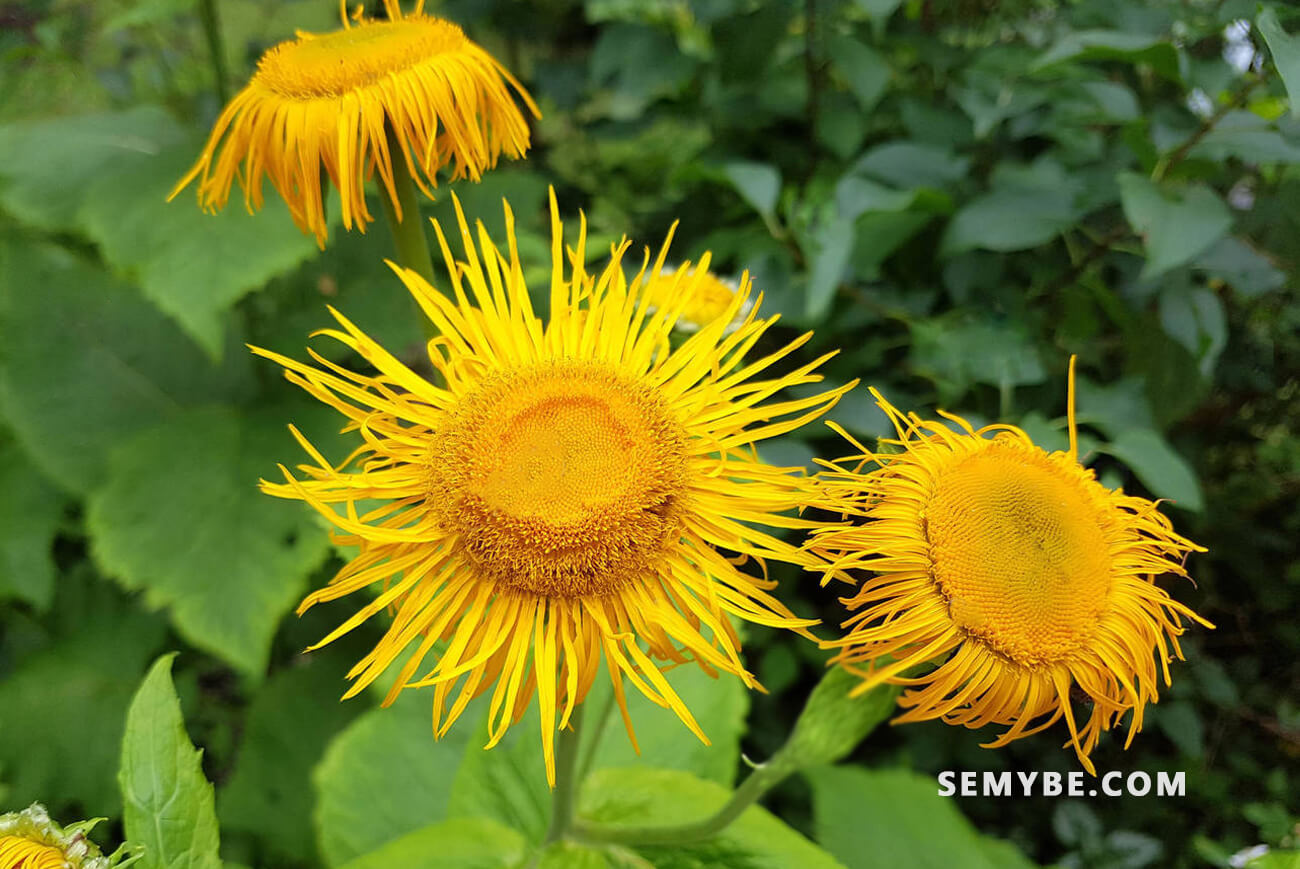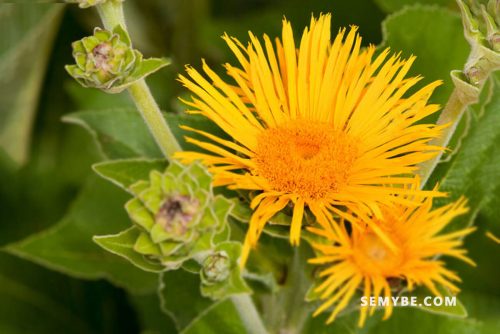
Inula Helenium
1. History and use
Native to southeastern Europe and western Asia, the elm tree grows in temperate regions. It is cultivated by sowing (in spring) or by root division. It prefers moist soils In autumn, we dig up the root, then cut it to dry at high temperature.
2. Description of the plant
Taken by the Romans for its medicinal but also culinary virtues, this plant owes its botanical name (helenium) to the wife of King Menelaus, Helen of Sparta, who wore a bouquet of elk when it was removed by Pans Considered as a tonic, the root of the OTC treats chronic bronchitis as well as other lung diseases.

3. Curative action
- Bronchial conditions
The alder has been known for a long time as a tonic of the respiratory system Its gentle action can treat almost all bronchial affections.
- Chronic bronchitis
The medicinal properties of the auncan are particularly applicable to the treatment of chronic bronchitis and asthma The plant owes its effectiveness to its soothing and expectorant action on bronchioles. Thanks to its backward properties, it accelerates the guénson by facilitating the digestion and absorption of food.
- Gastrointestinal disorders
Oatmeal has a tonic effect on digestion It stimulates appetite and digestion It is also a very effective dewormer.
- Infections
Formerly, the officinal ounce treated tuberculosis. It works in synergy with other antiseptic plants and it is present in case of influenza and tonsillitis. Its tonic and fortifying action helps to fight infections.
4. Uses
To calm the cough prepare an infusion, reduce by half on low heat then add sugar or honey Drink one or two teaspoons of this syrup every 2 hours.




